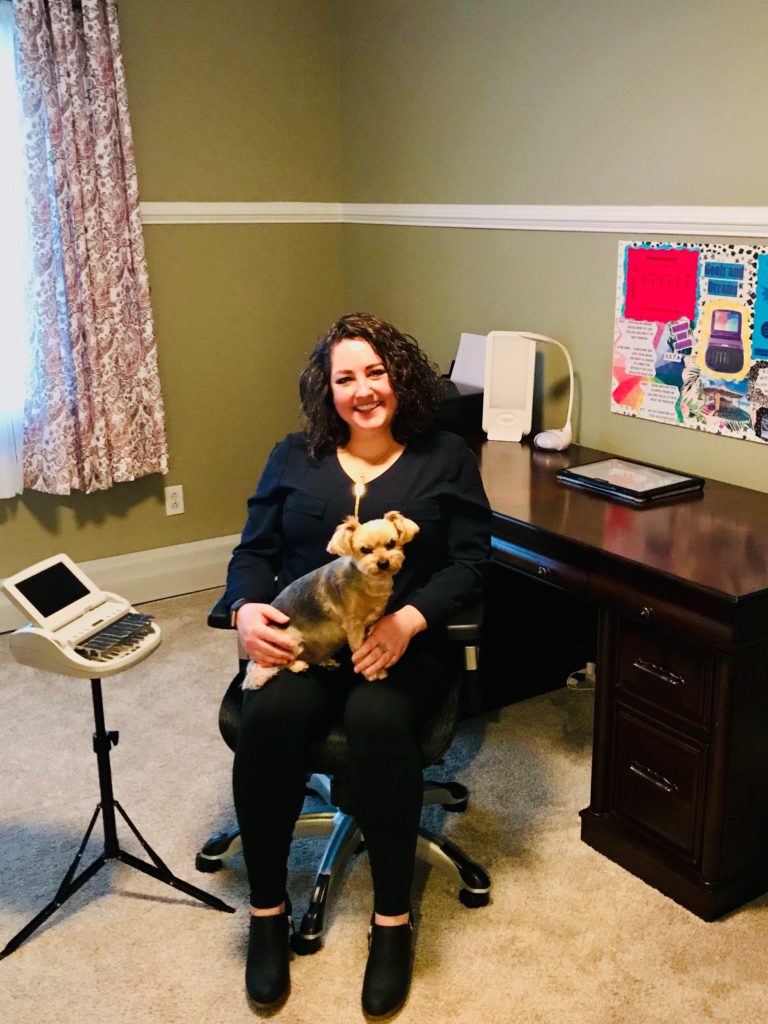
Tiffany Sipler is a court reporting student at Plaza College in Forest Hills, N.Y.
UTS | Can you talk a little about your background? You were in the U.S. Navy before you started court reporting school, right?
TS | That’s correct. In a nutshell, I joined the United States Navy on my 21st birthday, back in August 2005. After serving six years active duty as a master-at-arms, both stateside and overseas, I returned home to the suburbs of Philadelphia and finished my bachelor of science in administration of justice from Pennsylvania State University. Life then presented the opportunity of working as an emergency communications dispatcher (otherwise known as a 911 operator) with the Bucks County Department of Emergency Communications. After years of shift work in the Navy and the 911 center, working 12-hour shifts (plus overtime), both weekends and holidays, I realized something was missing: quality of life. It was at this juncture in my life when I decided to do more for me. I wanted to learn and master the skill and occupation of court reporting.
UTS | How did you first get the idea of being a court reporter?
TS | My coworker at the 911 center introduced me to her roommate, who was enrolled in court reporting school. After multiple discussions about court reporting, I became even more intrigued, and stenography constantly remained in the back of my mind. I had a very good job with Bucks County, which made my decision to leave at 35 years old to start something new very difficult. I researched, thought about, and considered what I possibly could regarding this amazing career for about three years before making my final decision to take the plunge and embark on a new journey.
UTS | What kinds of challenges have you faced during your court reporting program?
TS | There’s definitely been a few for sure. Since starting school, my challenges have included a long commute, self-doubt, high stress, and juggling court reporting classes along with other academics. Before committing to this program, I knew online schooling was not an option; I needed the communicative and engaging learning style. The closest brick-and-mortar school from Philadelphia is in Queens, New York; however, that is approximately 100 miles away and a two-hour drive in each direction on a good day. It was not the best arrangement, but I needed to be resilient and overcome these obstacles. I was determined! The first nine weeks of school, I stayed at an Airbnb – yep, didn’t work out. This was not ideal, so I finally decided to start commuting from home each day. I traveled by car, train, and subway, four days a week, which meant at least a six-hour round trip commute each day, passing through three different states. It was exhausting, stressful, emotionally draining, and extremely difficult. I needed to think flexibility…. maybe I should talk to my advisor and professors? I did, and ultimately the president of Plaza College was able to allow me to work from home utilizing Google Meet. Plaza College has not only authorized me to use Google Meet, but even implemented online classes for remote students like myself. It’s been a saving grace to my overall health and stress levels.
UTS | If you were to go to a high school career fair to recruit students, what would you say to them about a career in court reporting and captioning?
TS | This is right up my alley. For years I have been trying to convince my nephews to follow in my military footsteps. Now, I’m trying to entice my 10-year-old niece to go to court reporting school. If I were to go to a high school career fair to recruit students, I would talk to them about this lucrative career and all the different options it has to offer. Whether you want to work a 9-5 job in the courts, make your own schedule while freelancing, or perhaps work with the hearing impaired, the options and opportunities are endless. On the other hand, even though job opportunities and money may be convincing, school is the hardest hurdle you’ll have to overcome. This is such an amazing and specific skill to learn, but once you achieve that 225 words per minute, this career can take you all over the world.
UTS | Where do you see the profession of court reporting and captioning 10 years from now? Do you think technology will help or hurt the profession?
TS | I’m super excited to see where this profession, as well as myself, goes in the next 10 years. I think technology in the form of CAT software, artificial intelligence, and stenograph writers will help our profession; however, only if we are willing to go the extra mile to learn the “what” and “why” of this technology. We will have to learn “with” and embrace technology as a support, not an enemy. The human touch and emotions will always have a role in this profession. In addition, I firmly believe that there will be a resurgence in the court reporting field. Based on the number of students enrolling in my school alone, I believe a new wave of court reporters will grace our presence and there will still be more than enough jobs for everyone.
UTS | Where do you see yourself in five years?
TS | As a happy graduate of Plaza College! In five years, I hope to reflect on my time as a student at Plaza College with pride and no regret, knowing that I gave it my all. I want to celebrate the hard work, dedication, perseverance, and focus it took to learn a new instrument and language and how that skill enabled me to write 225 words per minute. Upon graduation, I’m hoping to grow in the freelance community, but ultimately learn and work my way into closed captioning and/or communication access realtime translation. In five years, I’m hoping to be living the life I envisioned this career would grant me: the ability to travel, live comfortably, and to be successful in more ways than one. Basically, the dream life!






